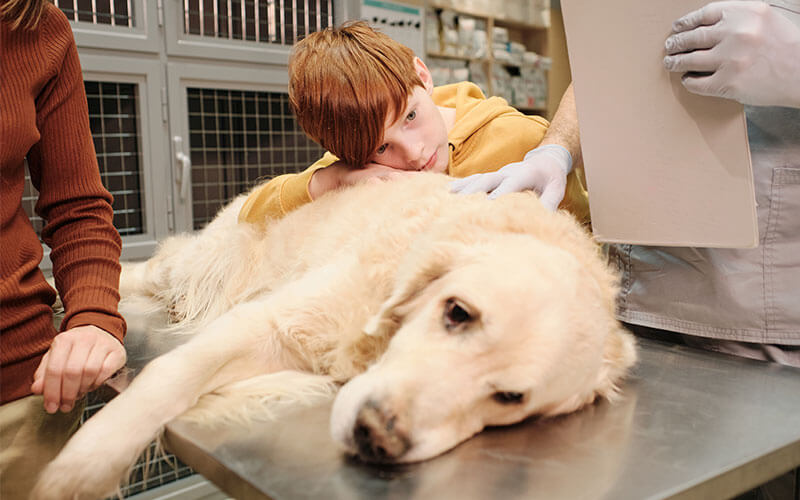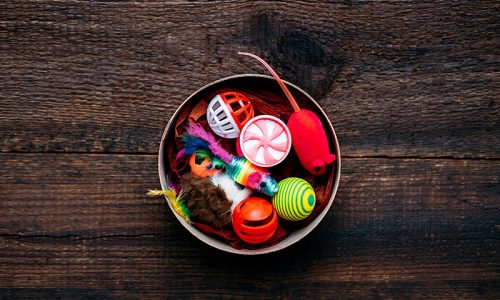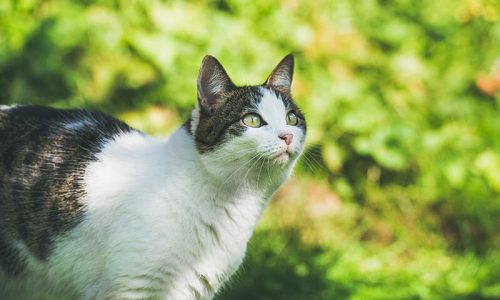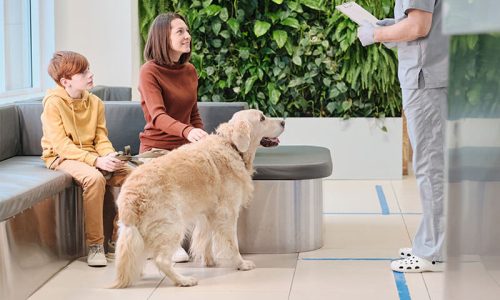
Toxic Substances Your Pet Should Never Eat
- Pet Care
- July 12, 2024
Being a pet owner is a deeply rewarding responsibility, and those responsibilities include ensuring your pets can’t get into and eat something dangerous. The national ASPCA Animal Poison Control Center hotline receives hundreds of thousands of calls per year. Education and prevention are the best ways to ensure you don’t experience the fear of having to make one of those calls yourself. Here are some of the most common toxic substances your pet should never eat.
Foods
Certain foods that are safe for human consumption may pose a hazardous risk to your pet’s health. Here are some of the most common foods that can be poisonous for your pet.
- Alcohol
- Apple Seeds
- Apricot Pits
- Avocado
- Cherry Pits
- Chocolate
- Coffee, grounds, beans, and beverage
- Garlic
- Grapes
- Gum
- Hops
- Macadamia Nuts
- Marijuana Edibles
- Mushrooms
- Mustard Seed
- Onion
- Potato Leaves and Stems
- Raisins
- Rhubarb Leaves
- Salt
- Tea and Other Caffeinated Beverages
- Tomato Leaves and Stems
- Xylitol (Gums, Mints, Sugar-Free Candy)
- Yeast
Plants
Having a lush and beautiful garden may be a priority for you, but make sure to keep your garden pet-friendly and avoid the following plants and flowers.
- Angelica
- Azalea
- Bay Laurel
- Begonia
- Bird of Paradise
- Borage
- Buttercups
- Caladium
- Calla Lily
- Carnation
- Castor Bean
- Chamomile
- Chrysanthemum
- Corn Plant
- Crabapple
- Dahlia
- Daffodil
- Daisy
- English Ivy
- Foxglove
- Holly
- Hyacinth
- Jade Plant
- Lily of the Valley
- Lily
- Mandrake
- Oleander
- Peace Lily
- Poinsettia
- Pothos
- Sago Palm
- Ti-Plants
Medications
Keep your pet safe by keeping all medications out of reach. Blister packs and medication bottles may keep kids out of them, but they won’t stop a determined pet.
- Ibuprofen
- Naproxen
- Cold Medications
- Herbal Supplements
- NSAIDS
- Antidepressants
- Heart Medications
- Veterinary Medications
Household Goods
Common household products can pose a significant risk to your pet’s health if ingested. Keep products stored in secured cabinets or shelves.
- Cleaning Products
- Pesticides
- Rodenticides
- Fertilizers
Know The Symptoms
Different substances will have different effects on your pet. Symptoms of poisoning may include:
- Excessive Vomiting
- Diarrhea
- Lethargy
- Excessive Drooling
- Respiratory Issues
- Seizures
- Convulsions
- Muscle Spasms
Seeking Medical Care
If your pet does manage to ingest a potentially toxic or poisonous substance, take your pet and a sample of the substance and product label to your local veterinary clinic immediately for treatment. Do not wait for symptoms to manifest. The faster you seek treatment, the better chance there is for your pet to survive with minimal internal damage. For suspected ingestion of an unknown plant species, poisonous food, or household product, call the ASPCA Poison Control Center Hotline at (888) 426-4435, or contact your local vet clinic for further instruction.
What To Expect
When your pet ingests a toxic substance, you will take your pet to the veterinary clinic or hospital, where they will receive treatment. Treatment may include IV fluids, activated charcoal, or surgery. Your pet may also be placed on medications to support their kidney and liver function, pain medication, or receive other supportive services.
By keeping the above-mentioned substances, plants, and foods away from your pet, you can help further protect your companion and ensure they have a safe, healthy, and happy home.



